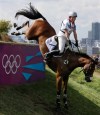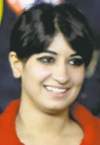The last-place darling
Rower from Niger shows true Oly spirit
Advertisement
Read this article for free:
or
Already have an account? Log in here »
To continue reading, please subscribe:
Monthly Digital Subscription
$1 per week for 24 weeks*
- Enjoy unlimited reading on winnipegfreepress.com
- Read the E-Edition, our digital replica newspaper
- Access News Break, our award-winning app
- Play interactive puzzles
*Billed as $4.00 plus GST every four weeks. After 24 weeks, price increases to the regular rate of $19.00 plus GST every four weeks. Offer available to new and qualified returning subscribers only. Cancel any time.
Monthly Digital Subscription
$4.75/week*
- Enjoy unlimited reading on winnipegfreepress.com
- Read the E-Edition, our digital replica newspaper
- Access News Break, our award-winning app
- Play interactive puzzles
*Billed as $19 plus GST every four weeks. Cancel any time.
To continue reading, please subscribe:
Add Free Press access to your Brandon Sun subscription for only an additional
$1 for the first 4 weeks*
*Your next subscription payment will increase by $1.00 and you will be charged $16.99 plus GST for four weeks. After four weeks, your payment will increase to $23.99 plus GST every four weeks.
Read unlimited articles for free today:
or
Already have an account? Log in here »
Hey there, time traveller!
This article was published 30/07/2012 (4836 days ago), so information in it may no longer be current.
WINDSOR, England — “You can do it,” screamed the announcer. Some in the packed grandstands were on their feet, roaring him to the line.
After hearing the finishing horn, he slumped over in his boat, totally spent. After a few seconds, he lifted his head and saluted the crowd, a grin as wide as all Dorney Lake.
No, this wasn’t a British rower in a race for Olympic gold in front of his home-nation fans. This was Hamadou Djibo Issaka, crawling to the finish in last place in a single sculls repechage.

Djibo Issaka is 35 years old and from Niger in West Africa. He learned how to row only three months ago and has a technique that can generously be described as crude.
But there he was, under threatening skies, sloshing in the water in an orange and green shirt, pushing through the pain barrier like any other Olympic rower. He finished nearly 1 minute, 40 seconds behind the winner. He also drew one of the biggest rounds of applause of the day.
“It went well,” he said in French to The Associated Press. “I passed the finish line. It was great.”
Why is Djibo Issaka in the Olympics, competing against rowing’s elite? He received a wild card from the IOC Tripartite Commission, which allows each National Olympic Committee to enter up to five athletes for the Summer Games.
His appearance recalls that of a couple of other hapless Olympians.
There was Eddie “the Eagle” Edwards, a British ski jumper who became wildly popular after finishing a distant last at the Calgary Winter Olympics in 1988.
There was also Eric “the Eel” Moussambani, the Equatorial Guinea swimmer who captivated a world audience by flailing his way through the 100-metre freestyle at the Sydney Olympics in 2000. His time was more than twice that of the heat winner.
And now there’s Hamadou “the Sculling Sloth,” as he’s now dubbed in the British media.
Djibo Issaka, however, is not without titles. He is Niger’s national rowing champion.
“I have no technique,” he says. “I only have strength.”
Until May, he had been nowhere near a single scull. In fact, he probably wouldn’t have known what one was. He was, after all, a swimmer and the closest he had come to rowing was watching it on TV.
That all changed when the Niger Swimming Federation sent him to Egypt to try rowing. He then went for more training at the International Rowing Development Centre in Tunisia for two months.
With his spot in the Olympics set, he headed to the Belgian town of Hazewinkel for his final key preparations. Now, he’s at the Olympics, a long, long way from Hazewinkel.
On Saturday, Niger’s top leaders were in the stands when he finished last in his heat.
His time was 8:25.56. He was 14 seconds slower a day later.
“I tried,” he said. “I tried to make a good time.”
— The Associated Press








